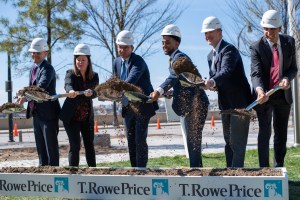By Shekhinah Braveheart,
Special to the AFRO
Maryland leaders wanting to address community concerns about rising crime should reform the state’s parole system. For too long, instead of providing incentives for good behavior and rehabilitation that would make our neighborhoods safer, Maryland parole has been associated with hopelessness and recidivism. Comprehensive parole reform, combined with more robust support to help released citizens succeed in the community, could help fix this.
A new report from the Justice Policy Institute (JPI), a nonprofit organization based in Washington, D.C., describes our state’s parole process as fraught with challenges. JPI researchers analyzed five years of data about the Maryland Parole Commission, collected, prepared, and shared by the Maryland Department of Public Safety and Correctional Services (DPSCS). In developing recommendations to address their findings, JPI reviewed the latest research and examined best practices in parole in other states. They also consulted with family members and individuals who have experience with the Maryland parole system and attorneys who assist individuals applying for parole.
Currently, the main outcome of parole in Maryland is hopelessness, the researchers found. Incarcerated people looking to the parole process for guidance find the system confusing, opaque, and arbitrary. Frequently, they have little to no opportunity to prepare their application, and some report learning of their parole hearing on the day it took place. People denied parole often receive no meaningful explanation to help them prepare for their next opportunity. Consequently, too many individuals remain incarcerated long past any meaningful public safety benefit.
Willie Hamsa, a returning citizen who now works to provide reentry support to others, knows the problems of current parole policy from personal experience.
“During my incarceration, I followed the rules, avoided trouble and participated in nearly every workshop, course and program that was offered, with titles like “Alternatives to Violence,” “Thinking for a Change” and “Stress Management,” he said. “I also learned a vocational trade, earned my GED, and took college courses. Yet, when I went up for parole after serving over 20 years, the Maryland Parole Commission showed no interest in my personal growth or how much I had changed. Instead, it was as if I were on trial all over again. Decades after a judge had already handed down my punishment, the details of my offense were the sole consideration, and I was denied early release. That I had spent a quarter of a century in prison and had no drug-related infractions during all those years didn’t seem to matter. I was denied parole release a total of four times before I was finally released after my fifth hearing last year.”
Mr. Hamsa’s experience is not unique. JPI’s report found that parole is as widely misunderstood today as it was in 1935—the last time anyone made a comprehensive study of the state’s parole system. The system routinely fails to adhere to its own rules and procedures, and little data are available to the public, including current annual grant rates and information about recidivism and racial disparities.
After nearly a century of indifference, it is time for Maryland to finally embrace the spirit and the intent of parole. As a first step, we should recognize that the first date of parole eligibility is the date that the goals of punishment have been met; release decisions should be based on the person’s demonstrated commitment to change after their sentencing. Other best practices include:
– Adopting transparent rules and procedures that reflect all interested parties’ input.
– Providing access to counsel and all materials that the parole board will use to make its decision before the hearing.
– Using a race-neutral, structured decision-making tool that incorporates a validated risk and needs assessment tool.
– Documenting reasons for denial of parole in writing, and making these appealable. – Expanding eligibility and developing standards for “Compassionate Release” of geriatric and chronically ill populations.
– Working closely with other criminal legal and support agencies to ensure the development of a parole release plan that supports successful reentry.
– Selectively imposed supervision, with the length of conditions linked to risk and limited to the least restrictive necessary to meet the goals of reentry and public safety.
– Front-loading resources and providing opportunities to shorten the parole term through good behavior.
A high-functioning parole system can both enhance public safety and conserve state resources. JPI’s report offers practical steps that today’s leaders can take to finally fulfill the promise of parole. The full report, Safe at Home: Improving Maryland’s Parole Release Decision Making, can be accessed, read, and downloaded from the Justice Policy Institute’s website, www.justicepolicy.org.
Shekhinah Braveheart is an Advocacy Associate at the Justice Policy Institute.
The opinions on this page are those of the writers and not necessarily those of the AFRO. Send letters to The Afro-American • 233 E. Redwood Street Suite 600G
Baltimore, MD 21202 or fax to 1-877-570-9297 or e-mail to editor@afro.com
The post Maryland’s Parole System Is Failing Us—And Has Been for A Long Time appeared first on AFRO American Newspapers .











